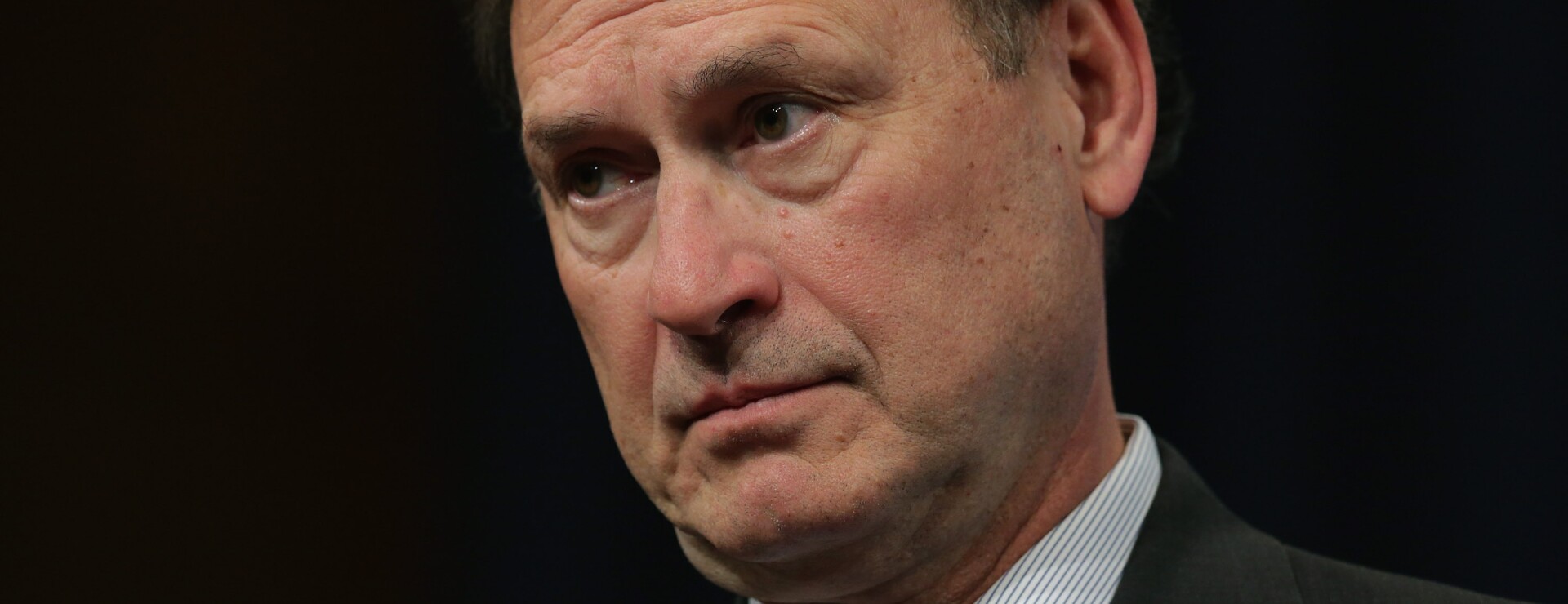
New revelations about travel gifted to US Supreme Court justices highlight the tension between rules intended to ensure impartiality and the difficulty in sussing out conflicts.
Justice Samuel Alito is the target of ProPublica’s most recent reporting, which found he took a 2008 Alaska fishing trip with billionaire Paul Singer and didn’t recuse himself in a 2014 case involving his hedge fund.
But corporate disclosure rules aimed at parties in an appeal aren’t designed to get at personal conflicts of interest like the allegation around Alito and Singer, said Hogan Lovell’s Sean Marotta. Instead they are intended to flag financial conflicts, a problem even recent amendments have failed to completely address.
Alito said in a Wall Street Journal op-ed Tuesday that he wasn’t aware of Singer’s involvement in the 2014 case given the limited information provided to the justices in the mandated corporate disclosures, and that it would be “utterly impossible” for his law clerks to track that down.
Some legal scholars say he’s right about the court’s ability to identify potential conflicts, particularly since they are done in-house.
Supreme Court conflicts checks are typically conducted within individual chambers, often by clerks and staff tasked with handling a variety of court business, Marotta explained.
“The main job of a Supreme Court clerk is not to root out conflict but to assist the justices in research, how to decide cases and drafting opinions,” said John Yoo, a constitutional law professor at the University of California at Berkeley, who clerked for Justice Clarence Thomas from 1993 to 1994.
Many Limited Liability Companies (LLC) and partnerships are often designed to prevent people from figuring out who the real interests are in the ownership of a property or business, Yoo said.
“How are Supreme Court clerks supposed to do that not just for the cases that are granted, but the six to 7,000 cert. petitions that are filed?” he asked in referring to appeals seeking review by the court, or certiorari.
Other legal scholars say there are steps the court should take to address recent ethics concerns, including the relationship between the justices and wealthy parties whose cases may come before the court.
Going Further
Identifying business ownership of court participants isn’t just a problem for Supreme Court clerks and staff.
Currently all federal courts, including the Supreme Court, require nongovernmental corporations to note any parent corporation or any publicly held company owning 10% or more of the corporation’s stock.
But a December 2022 report from the judiciary’s Advisory Committee on Civil Rules notes that even that may not capture all the relevant parties.
For example, a suit involving beverage company Orange Julius would note only that it is wholly owned by the ice cream giant International Dairy Queen. “But that disclosure would not go farther, even though Dairy Queen is wholly owned by Berkshire Hathaway,” the report said, referring to the behemoth holding company run by Warren Buffett. So “the disclosure would not alert the judge to the problem if the judge had Berkshire Hathaway holdings.”
The situation can be even trickier with limited liability entities, where ownership does not necessarily need to be disclosed in court filings and which are at the heart of the allegations involving Alito.
“It would be utterly impossible for my staff or any other Supreme Court employees to search filings with the SEC or other government bodies to find the names of all individuals with a financial interest in every such entity named as a party in the thousands of cases that are brought to us each year,” Alito wrote in his op-ed.
The justices recuse in roughly 3% of the thousands of appeals that are brought to the court each term, according to a Bloomberg Law analysis.
Even if court clerks were to check state and Securities and Exchange Commission filings, it might not be immediately clear exactly who has a stake in an LLC or LLP.
Part of the reason entities have to register to do business in a state is so this information can be found, but other corporations can be listed as the owner, said Brandon Szerwo, an assistant professor of accounting and law at the University at Buffalo School of Management.
“There is some degree of difficulty in this, especially if the ultimate benefactor wants to remain anonymous or at least make it a little more difficult to detect their ownership or interest,” he said.
Other scholars, though, say there are steps the justices can take to help alleviate the problem.
St. John’s University School of Law Professor John Barrett suggested on Twitter it would be easy to “ask anyone who gives you a gift to list their LLCs and LLPs, & then check cases against that.”
Marotta floated the possibility of a centralized office within the court to more effectively conduct conflicts checks than doing so in chambers.
The justices must act if they want the court’s reputation to be beyond reproach, said Georgetown law professor Caroline Fredrickson.
In a statement Wednesday, Senate Judiciary Chair Dick Durbin (D-Ill.) said the panel will take up Supreme Court legislation after the July 4 recess.
“The highest court in the land should not have the lowest ethical standards,” Durbin said. “But for too long that has been the case with the United States Supreme Court.”
"conflict" - Google News
June 22, 2023 at 08:18PM
https://ift.tt/rxoyTNW
Supreme Court Struggle to Spot Conflict Laid Bare in Alito Trip - Bloomberg Law
"conflict" - Google News
https://ift.tt/UjHlEYr
https://ift.tt/msncKMb
Bagikan Berita Ini














0 Response to "Supreme Court Struggle to Spot Conflict Laid Bare in Alito Trip - Bloomberg Law"
Post a Comment